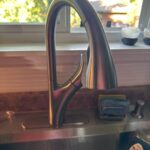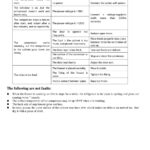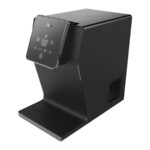Toilet bowl cleaner is not recommended for use in the sink. It contains harsh chemicals that can damage sink surfaces.
Using the right cleaning products for each area of your home is crucial. Toilet bowl cleaners are specifically formulated to tackle the unique stains and bacteria found in toilets. These cleaners often contain strong acids and other harsh chemicals. Applying such products to sinks, especially those made of delicate materials, can lead to damage and discoloration.
It’s important to use products designed for sinks to ensure effective cleaning without harm. Additionally, using inappropriate cleaners can pose health risks due to the release of toxic fumes. Always read labels and choose the correct cleaner for each task to maintain a safe and clean home environment.

Credit: www.reddit.com
Ingredients In Toilet Bowl Cleaner
Toilet bowl cleaners contain powerful ingredients. These ingredients are designed to remove tough stains and disinfect. But can these ingredients be used in the sink? Understanding the components is crucial.
Chemical Composition
Toilet bowl cleaners have strong chemicals. These include:
- Hydrochloric Acid: Very strong and can dissolve tough stains.
- Sodium Hypochlorite: Commonly known as bleach, it kills germs.
- Surfactants: Help the cleaner spread and stick to surfaces.
- Fragrances: Mask the strong chemical smells.
These chemicals work together. They clean and disinfect toilet bowls effectively.
Potential Hazards
Using toilet bowl cleaner in the sink can be risky. Here are some potential hazards:
| Hazard | Description |
|---|---|
| Corrosion | The strong acids can damage sink pipes. |
| Toxic Fumes | Mixing with other cleaners can release harmful gases. |
| Skin Irritation | Direct contact can cause burns or rashes. |
Always handle with care. Keep these hazards in mind to stay safe.
Differences Between Sink And Toilet Bowl Cleaners
Understanding the differences between sink and toilet bowl cleaners is important. These cleaners have unique formulations and intended uses. Using the wrong cleaner can cause damage and not effectively clean the surface.
Formulation Differences
Toilet bowl cleaners are strong and contain harsh chemicals. They often have bleach, hydrochloric acid, or chlorine. These chemicals help remove tough stains and kill germs in the toilet.
Sink cleaners are milder and safer for delicate surfaces. They typically contain gentle abrasives or mild acids like citric acid. These ingredients help clean soap scum and everyday grime.
| Cleaner Type | Main Ingredients | Strength |
|---|---|---|
| Toilet Bowl Cleaner | Bleach, Hydrochloric Acid, Chlorine | Strong |
| Sink Cleaner | Citric Acid, Mild Abrasives | Mild |
Intended Uses
Toilet bowl cleaners are designed for ceramic and porcelain surfaces. They target hard water stains, rust, and bacteria in the toilet bowl.
Sink cleaners are meant for surfaces like stainless steel, porcelain, and enamel. They focus on removing soap scum, toothpaste, and light stains.
- Toilet Bowl Cleaner: Best for toilet bowls.
- Sink Cleaner: Ideal for sinks and countertops.
Using the right cleaner for each task ensures effective cleaning and prevents damage.
Safety Concerns
Using toilet bowl cleaner in the sink might seem convenient. But, there are serious safety concerns to consider. This section explores potential health risks and the environmental impact of this practice.
Health Risks
Toilet bowl cleaners often contain harsh chemicals. These chemicals can be harmful to human health.
Exposure to fumes can cause headaches, dizziness, and nausea. Direct contact with the skin can lead to irritation or burns.
Some cleaners release toxic gases when mixed with other substances. This can be dangerous if inhaled.
Always use products as intended to avoid these risks.
Environmental Impact
Toilet bowl cleaners can harm the environment. They often contain strong chemicals like bleach and hydrochloric acid.
These chemicals can contaminate water sources. This harms aquatic life and affects water quality.
Using these cleaners in the sink can introduce these harmful substances into the water system.
Consider using environmentally-friendly products to reduce this impact.
Proper Usage Of Cleaning Products
Using the right cleaning products is essential for safe and effective cleaning. Different surfaces and fixtures require specific cleaners. Misusing cleaning products can lead to damage and health risks.
Label Instructions
Always read the label instructions on any cleaning product. Manufacturers provide specific guidelines for safe use. The label will tell you if the product is safe for sinks.
For example, a toilet bowl cleaner might contain harsh chemicals. These chemicals can damage sink surfaces and pipes. The label will also indicate any safety precautions. Always follow these instructions to avoid harm.
Recommended Alternatives
Instead of using toilet bowl cleaner, consider recommended alternatives for sinks. Here are some safe options:
- Baking soda and vinegar
- Lemon juice and salt
- Commercial sink cleaners
These alternatives are effective and safe for most sinks. They help keep your sink clean without causing damage.
| Cleaning Product | Usage |
|---|---|
| Baking Soda and Vinegar | Sprinkle baking soda, pour vinegar, scrub, and rinse. |
| Lemon Juice and Salt | Mix lemon juice with salt, scrub, and rinse. |
| Commercial Sink Cleaners | Follow the label instructions for best results. |
Choose the right product for the task to ensure a clean and safe environment.
Potential Damage To Sink Materials
Using toilet bowl cleaner in the sink might seem convenient. But this can cause significant damage to your sink materials. Toilet bowl cleaners contain harsh chemicals. These chemicals can react with sink surfaces. Here are some potential risks:
Corrosion Risks
Toilet bowl cleaners often have acidic ingredients. These acids are designed to break down tough stains. But they can also corrode sink materials like metal or enamel. Over time, this corrosion can cause pitting and wear on your sink surface.
| Sink Material | Corrosion Risk |
|---|---|
| Stainless Steel | High |
| Porcelain | Moderate |
| Granite | Low |
Staining Issues
Toilet bowl cleaners can also cause staining. The dyes and chemicals in these cleaners can leave permanent marks. This is especially true for porous materials like porcelain and granite.
- Porcelain sinks can absorb the dye, causing ugly stains.
- Granite sinks may also get discolored.
- Stainless steel sinks might develop streaks and discoloration.
To avoid these issues, use products designed for sinks. They are formulated to be gentle and effective on sink surfaces.
Emergency Measures
Sometimes, you might accidentally use toilet bowl cleaner in the sink. Knowing what to do quickly is crucial. This section will guide you through essential emergency measures.
Accidental Exposure
Accidents happen. If toilet bowl cleaner touches your skin, it can cause irritation. If it gets in your eyes, it can be dangerous. Inhaling fumes can also harm your health. Knowing how to respond is vital.
First Aid Tips
Here are some first aid tips to follow:
- Skin Contact: Wash the area with soap and water. Remove contaminated clothing.
- Eye Contact: Rinse eyes with water for 15 minutes. Keep eyes open while rinsing.
- Inhalation: Move to fresh air immediately. Breathe deeply.
- Ingestion: Do not induce vomiting. Drink water and seek medical help.
Having a plan for accidental exposure can save time and prevent harm. Follow these steps to ensure safety.
Safe Cleaning Practices
Using toilet bowl cleaner in the sink can be risky. It’s important to follow safe cleaning practices to protect yourself and your home. Always prioritize safety when using strong chemicals.
Protective Gear
Wear protective gear to avoid skin and eye irritation. Gloves, goggles, and a mask are essential. These will help shield you from harmful splashes and fumes.
| Protective Gear | Purpose |
|---|---|
| Gloves | Protects your hands from chemicals |
| Goggles | Shields your eyes from splashes |
| Mask | Prevents inhalation of fumes |
Ventilation Tips
Good ventilation is crucial when cleaning with strong chemicals. Open windows and doors to let fresh air in. Use a fan to circulate air if possible.
- Open windows: Allows fresh air to enter the room.
- Use a fan: Helps to move air and reduce fumes.
- Ventilation system: Turn on the exhaust fan if available.
Proper ventilation prevents the buildup of harmful fumes. Always ensure the area is well-ventilated before you start cleaning.
Frequently Asked Questions
Is Toilet Bowl Cleaner Safe For Pipes?
Most toilet bowl cleaners are safe for pipes. Use products as directed to avoid potential damage. Always check labels for safety.
Can You Use Toilet Bowl Cleaner On Other Surfaces?
Toilet bowl cleaner is typically too harsh for other surfaces. It can cause damage or discoloration. Always read the label and use products as directed.
Can You Use A Clorox Toilet Wand On A Sink?
It’s not recommended. Clorox toilet wands are designed for toilets, not sinks. They may cause scratches or damage.
Is It Ok To Use Toilet Bowl Cleaner In Shower?
Using toilet bowl cleaner in the shower isn’t recommended. It can damage surfaces and release harmful fumes. Use shower-specific cleaners instead.
Can You Use Toilet Bowl Cleaner In The Sink?
Toilet bowl cleaner can damage sink surfaces. It’s best to use a cleaner specifically designed for sinks.
Conclusion
Using toilet bowl cleaner in the sink is not recommended. It can damage sink materials and cause harmful fumes. Always choose appropriate cleaning products for each area. Doing so ensures safety and cleanliness. Remember, proper maintenance extends the life of your fixtures and keeps your home healthier.




